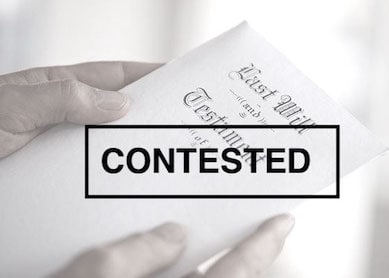What is Considered Undue Influence for Purposes of a Will Contest?

When is Influencing the Testator Enough to Overturn a Will?
Undue influence is often tied in with duress when it comes to contesting a will and are often actually used together. Both convey the same idea in that someone succeeded in making the testator to make or change their will in a way that does not reflect the testator’s free will, but rather the will of the person doing the pushing. However, the mechanism for undue influence as compared to duress is different in that no threat is made, rather manipulation or other pressure is used. Undue influence when it comes to someone writing a will is a serious matter, and if you believe that the testator in your case was the subject of undue influence, you need to contact a New York City estate attorney.
It is easier to establish undue influence if the following factors are present:
- Susceptibility. The testator had a weakness (physical, mental, or financial) that made them susceptible to influence;
- Opportunity. The wrongdoer had access to the testator and an opportunity to exert influence; (e.g. taking care of testator, excluding everyone else, cutting off testator’s communication with their family and friends so that the wrongdoer can have total control of the testator)
- Active participation. The wrongdoer actively participated in drafting the will; and
- Unnatural disposition. There is an unnatural (unexpected) result.
A common law presumption of undue influence can possibly be established if:
- Confidential relationship. A confidential relationship existed between the testator and the wrongdoer;
- Active participation. The wrongdoer actively participated in the drafting the will; and
- Unnatural disposition. There is an unnatural result.
There is a strong presumption of undue influence if the testator makes a donative transfer to
- Drafter. The person who drafted the will;
- Care custodian. A care custodian of a testator who is a “dependent adult”;
- Fiduciary. A person in a fiduciary relationship with the testator, like an accountant, banker, lawyer or financial adviser.
Undue influence usually happens when someone used power gained by being in a trusted position with the testator in order to substitute their free will for the testator’s own when it comes to the testator’s will. For example, a relative or family friend limits the testator’s relatives access to the testator, while simultaneously convincing the testator that the children don’t love them, which in turn convinces the testator to change the will to leave everything to them. Often times, those who normally would have benefited from the will not even find out that anything has been changed until after the testator’s death.
There are a couple of things that are red flags when it comes to whether or not someone used undue influence to change a will in their favor. One is that the person ingratiated themselves with the testator shortly before his or her death. Another is that the attorney who drafted the will was the attorney of the person who is alleged to use undue influence or that the attorney was paid by the influencer or the appointment set up by the influencer. Another sign could be that the execution and contents of the new will are kept secret from those who would have normally been the beneficiaries. This is far from a comprehensive list, however, as there can be many levels of the amount of influence exerted on a testator.
There are four main things that need to be proven by someone who is contesting a will for undue influence. One is that people who normally have been part of the will, such as close family members, are left out or had their gifts greatly lowered. Another is that the person who made the will had what is called a “confidential relationship” with the person who influenced them, meaning that they trusted them or the person doing the influencing was somehow in a position of power. What also needs to be proven is that the testator would have been susceptible to being influenced, most likely due to illness, frailty, dementia or mental illness. And that the person who is alleged to have done the influencing actually replaced the testator’s desire when it came to what was in the will with that of the influencer’s. This last factor is usually the most challenging to prove, because the person who does the influencing may not have done it in an obvious way.
Will challenges based on undue influence are very subtle and challenging, both to prosecute and to defend. If you would like to discuss your situation with a York City estate attorney, call the Law Offices of Albert Goodwin at 212-233-1233.
